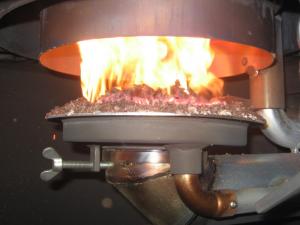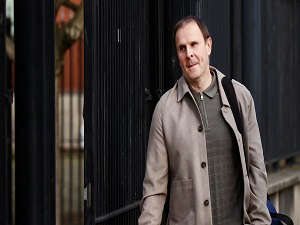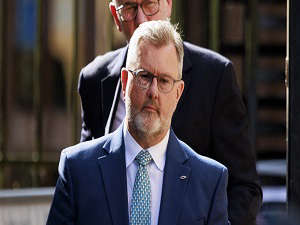
By Deborah McAleese
The Department for the Economy has faced a backlash for publishing the names of businesses and individuals who claimed from a botched green energy scheme in Northern Ireland.
A 61-page list of all those individuals and companies that received support payments under the non-domestic Renewable Heat Incentive (RHI) scheme above the threshold of £5,000 has been made public by the department.
The department said it published the list "in the interests of transparency" and added that inclusion "does not imply wrongdoing by any of the beneficiaries".
The state-funded RHI was supposed to offer a proportion of the cost businesses had to pay to run eco-friendly boilers, but the subsidy tariffs were set too high, and without a cap, so it ended up paying out significantly more than the price of fuel.
This enabled some applicants to "burn to earn" - getting free heat and making a profit as they did so.
An independent inquiry has been launched in a bid to determine who was responsible for the flawed scheme.
The Renewable Heat Association NI (RHANI), which represents many of the scheme's recipients, said the publication of names has been "distressing" for its members.
RHANI also claimed that the figures are inaccurate - some by up to 300% per year.
The organisation questioned why the Department has "put so much effort into naming the scheme participants who are suffering as a consequence of its own process in setting up and managing the RHI scheme."
"The names, grades and salaries of the civil servants who designed, managed and policed the scheme are not available on the Department for the Economy website," a spokesperson said.
The list details the names of the scheme recipients, the dates of application to the scheme and the payments awarded.
According to the list some of the largest payments are in the region of half-a-million pounds.
The Department for the Economy said: "The Department wishes to make it very clear that the sole reason for publishing this list has been in the interests of transparency.
"Inclusion in the list does not, in any way, imply wrongdoing by any of the beneficiaries. In this regard, it is important that no one should prejudge the outcome of the planned audits or make incorrect presumptions based on the Department's decision to release these details."
The public inquiry into the scheme is due to begin hearing from witnesses in the autumn.
The departments of the economy and finance and regulator Ofgem will be in the spotlight as core participants in the inquiry who had some role during a saga which ultimately brought down Northern Ireland's powersharing government.
The investigation will consider the alleged lack of response by the authorities to those voicing concerns as the budget for the grant encouraging businesses to switch to sustainable energy was quickly blown.
It will spotlight the role played by ministers, their special advisers and civil servants and any action or inaction as the cost spiralled out of control in late 2015.
Former first minister Arlene Foster established the RHI in 2012 when she was enterprise minister.
When the "cash for ash" crisis flared during the winter, the late former Sinn Fein deputy first minister Martin McGuinness asked Mrs Foster to stand aside.
When she refused, he resigned and collapsed Stormont's powersharing institutions.
A new coalition government has still not been formed two months on from the snap Assembly election in March.


 Woman assaulted while jogging in West Belfast
Woman assaulted while jogging in West Belfast
 Leading loyalist Winston Irvine sentenced to 30 months for firearms offences
Leading loyalist Winston Irvine sentenced to 30 months for firearms offences
 Rescue operation to free 40 cows after lorry overturns on motorway
Rescue operation to free 40 cows after lorry overturns on motorway
 New date set for trial of former DUP leader Jeffrey Donaldson and wife
New date set for trial of former DUP leader Jeffrey Donaldson and wife